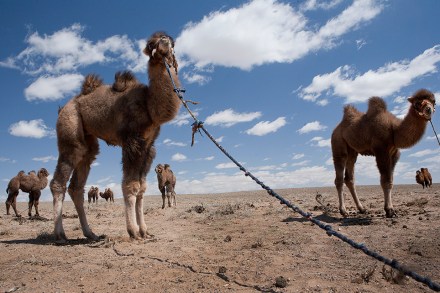How to tether your camel and other useful tips
Here’s a treat for Christmas: a bona fide literary treasure for under a tenner. And a handsome little hardback, too, which you could certainly squeeze into a stocking. On Travel and the Journey Through Life is an anthology of one-liners and observations on travel, from the high-spirited and romantic to the moody and downright cynical. When it comes to travel writing, all roads lead one way or another to Eland, that elegant publisher and gritty survivor. All sorts of brilliant people say nice things about Eland. Colin Thubron, the doyen of travel writers, to cite just one, admires its ‘nearly extinct integrity’ and ‘eccentric passion for quality’. And this is



